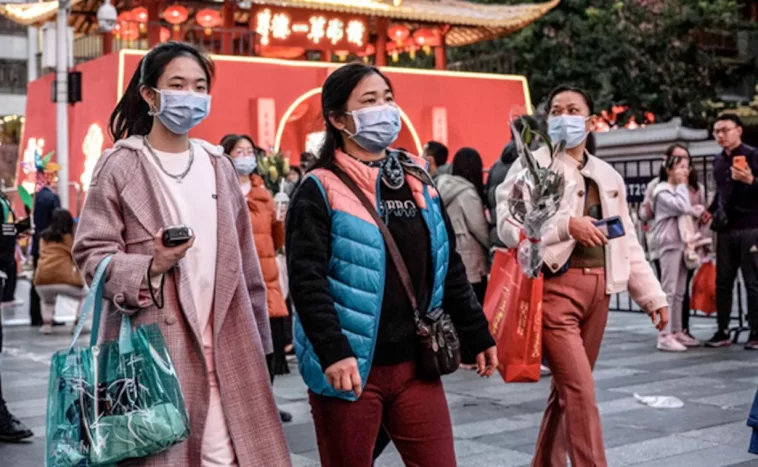The Chinese government is rushing to distribute vaccines to combat an ongoing new wave of the coronavirus that is expected to peak in June and infect as many as 65 million people per week, according to The Washington Post. The new XBB variants of the virus are evolving to overcome the immunity developed after China abruptly abandoned its “zero covid” policy last year.
Two novel vaccinations for the XBB omicron subvariants (including XBB. 1.9.1, XBB. 1.5, and XBB. 1.16) have been given preliminary approval, according to official media sources cited by The Washington Post. Zhong stated at a biotech symposium in Guangzhou that three to four additional vaccines will shortly be approved, but provided no further details.

The new outbreak may be the largest wave of illnesses ever recorded since China’s zero-Covid programme was abandoned last winter, resulting in up to 85 percent of the population falling unwell.
Even though there was an increase in infections in the United States due to the new variants, the public health emergency was declared over on May 11, according to The Washington Post, even though experts have not ruled out the possibility of new variants causing another wave of illnesses in the coming years.
Officials in China assert that the current wave will be less severe, but public health experts believe that a vigorous vaccination booster program and a ready supply of antivirals in hospitals are necessary to prevent another mortality spike among China’s enormous elderly population.
Another epidemiologist from the School of Public Health at the University of Hong Kong stated, “The quantity of infections will decrease. There will be fewer severe cases and fatalities, but this could still be a significant number,” adding, “Even if this is a milder wave, it could still have a significant impact on the community’s health.”
According to the Beijing Centre for Disease Control and Prevention, the number of cases has increased over the past month, with Covid overtaking influenza as the most prevalent infectious disease during the last two weeks of April.
Health specialists have reassured the public that the symptoms of reinfections will be less severe and that hospitals will not be overcrowded as they were during the previous winter. According to The Washington Post, some medical facilities have advised elderly and immunocompromised patients to wear masks and avoid crowded areas.
Even so, restrictions comparable to those imposed during the zero-Covid era, when China attempted to eradicate all diseases, have not been reinstated, and the majority of citizens appear to be living their lives as usual.
ALSO READ :128 Covid-positive tests in tricity
Olivia Zhang, 33, who works at an amusement park in Beijing, believes that the impact has not been all that significant, adding, “However, they will only be absent for a brief period of time before returning to work. Nobody is afraid to be around them.”
Several online complaints allege that a university in Nanjing quarantines students who test positive in dormitories. The Washington Post reported that other pupils posted online that they self-quarantined at school to avoid infecting their families at home.




